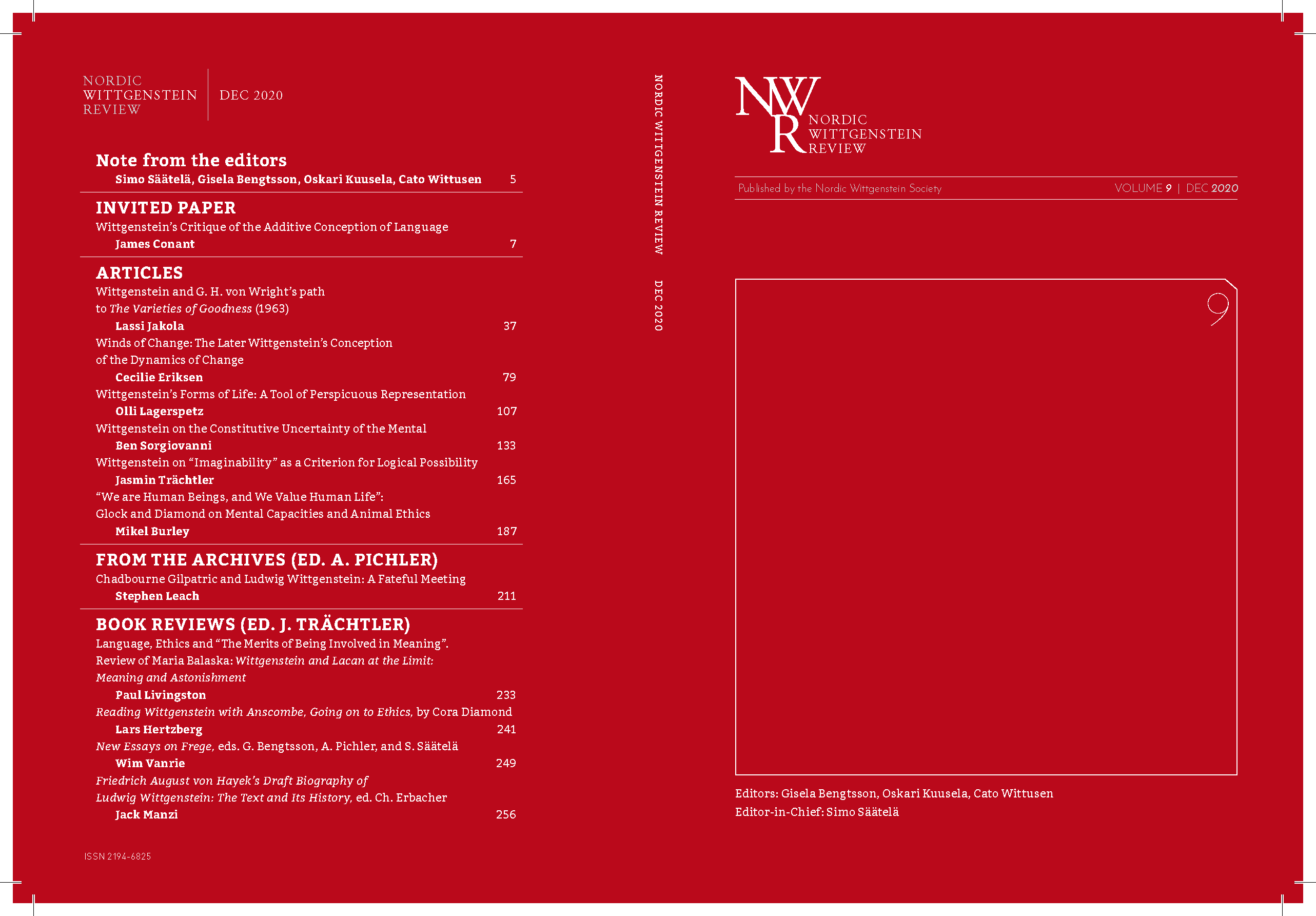Language, Ethics and "The Merits of Being Involved in Meaning". Review of Maria Balaska: Wittgenstein and Lacan at the Limit: Meaning and Astonishment
DOI:
https://doi.org/10.15845/nwr.v0i0.3567Abstract
Working through Balaska’s deeply perceptive, elegantly written, and profoundly honest book, Wittgenstein and Lacan at the Limit, a reader steeped in the recent academic literature about either or both of its main figures may come to feel herself placed at what is, itself, a certain kind of limit. The limit I mean is the limit of a familiar type of theoretical discourse about the constitution and structure of language and subjectivity as Wittgenstein and Lacan treat them: it includes the discourses that seek, for instance, to articulate how language and sense are constituted in the Tractatus, and thus what is really meant by “logical form” and “nonsense” there; or those that aim to comprehend the true relationship of our biological nature to language, culture, and the advent of freedom in Lacan; or, again, those that try to find, in either thinker’s works (or both), the precise location of the delicate logical buttonhole that would alone permit us entry, from within everyday language and life, to the absoluteness of an ineffable beyond. These discourses all treat of language and life, but handle these phenomena (so we might say) at arm’s length, theorizing the structure of each and the form of their relationship in such a way as to establish, ultimately, their mutual convertibility to one another, their mutual absorption into a third, more inclusive term (such as “nature” or “biology), or adduce translations from the dense theoretical matrices of one thinker’s treatment of them to the other’s (for instance, from the terminology of logic to that of psychoanalysis, or back again). Balaska’s book, doing none of these things, rather succeeds in bringing out how an interconnected reading of the Wittgenstein of the Tractatus and Lacan may speak to and inform our response to a certain kind of experience that is characteristic for both thinkers, and typical as well of those moments and occasions of our lives in which we may find ourselves drawn to reflect on what meaning is and how we relate to it.
Downloads
Published
How to Cite
Issue
Section
License
Copyright (c) 2020 Paul Livingston

This work is licensed under a Creative Commons Attribution 4.0 International License.
NWR uses the Creative Commons license CC-BY.
Vol. 1-3 used CC-BY-NC-SA. The collected works copyright ownership for Vol. 1-2 were shared by Nordic Wittgenstein Society and ontos Verlag/De Gruyter.








